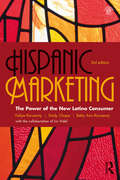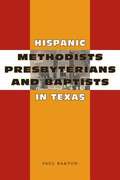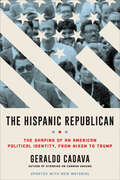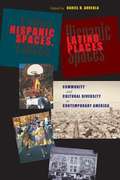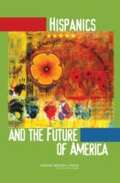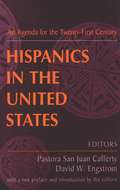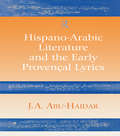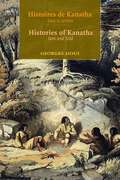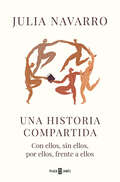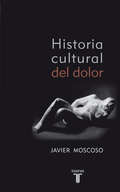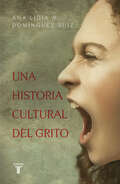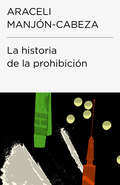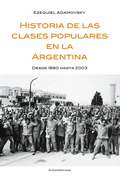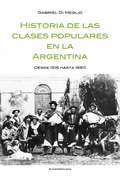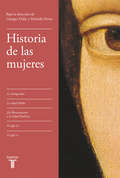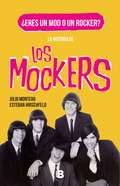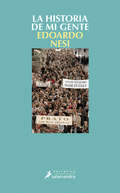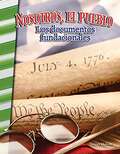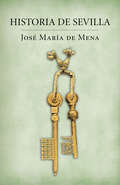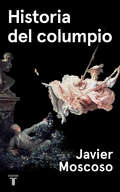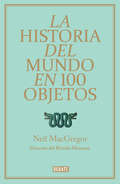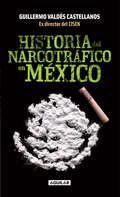- Table View
- List View
Hispanic Marketing: The Power of the New Latino Consumer
by Felipe Korzenny Sindy Chapa Betty Ann Korzenny Liz VidalThis book is about strategic thinking in Hispanic marketing. The size and economic importance of the Hispanic market in the US are attracting enormous attention. The buying power of the US Hispanic market is now larger than the GDP of the entire country of Mexico, and it is the second largest Hispanic market in the world. Businesses and institutions have launched major initiatives to reach this important segment. Yet, the number of qualified individuals who understand the market is small; and many of those already catering to the market still struggle to learn about its intricacies. This book is a cultural approach to Hispanic marketing. Each of the chapters describes and explains the cultural principles of Latino marketing. Recent case studies help marketers relate to the material pragmatically. The book integrates concepts and practical examples and provides critical guidance to discern between alternative courses of action. This book is not about repeating well-known statistics, but about the Hispanic market as a cultural target. It takes a profound look at the values, beliefs, and emotions of US Hispanics, which impact consumer behaviour. Each of the chapters has been the subject of public presentations and lectures to marketing professionals. It is their positive reactions as well as the authorsOCO dedication to Hispanic consumers which motivated this book. Chapter 1: The Role of Culture in Cross-Cultural Marketing Chapter 2: Characteristics of the Hispanic Market Chapter 3: What Makes Hispanics OC HispanicOCO Chapter 4: The Role of Language in Hispanic Marketing Chapter 5: The Processes of Enculturation, Acculturation, and Assimilation Chapter 6 Cultural Dimensions and Archetypes Chapter 7: Culturally Informed Strategy Based on Grounded Research Chapter 8: US. Hispanic Media Environment and Strategy Chapter 9: The Evolution of Hispanic Marketing Chapter 10: The Future"
Hispanic Methodists, Presbyterians, and Baptists in Texas
by Paul BartonThe question of how one can be both Hispanic and Protestant has perplexed Mexican Americans in Texas ever since Anglo-American Protestants began converting their Mexican Catholic neighbors early in the nineteenth century. <P><P>Mexican-American Protestants have faced the double challenge of being a religious minority within the larger Mexican-American community and a cultural minority within their Protestant denominations. As they have negotiated and sought to reconcile these two worlds over nearly two centuries, los Protestantes have melded Anglo-American Protestantism with Mexican-American culture to create a truly indigenous, authentic, and empowering faith tradition in the Mexican-American community.
Hispanic Representation in the Department of Defense Civilian Workforce: Trend and Barrier Analysis
by Miriam Matthews Bruce R. Orvis Kimberly Curry Hall Abigail Haddad Zavislan Nelson LimHispanics are less represented in the U.S. Department of Defense (DoD) civilian workforce than in the federal civilian workforce and the civilian labor force. This report assesses what factors might account for Hispanic underrepresentation in DoD. It includes assessments of trends in Hispanic employment and analyses of job applicant data. It also presents findings from interviews with representatives of DoD and of Hispanic-serving institutions.
The Hispanic Republican: The Shaping of an American Political Identity, from Nixon to Trump
by Geraldo L. CadavaAn illuminating and thought-provoking history of the growth of Hispanic American Republican voters in the past half century and their surprising impact on US politics, updated with new material reflecting on the 2020 electionIn the lead-up to every election cycle, pundits predict that Latino Americans will overwhelmingly vote in favor of the Democratic candidate. And it’s true—Latino voters do tilt Democratic. Hillary Clinton won the Latino vote in a “landslide,” Barack Obama “crushed” Mitt Romney among Latino voters in his reelection, and, four years earlier, the Democratic ticket beat the McCain-Palin ticket by a margin of more than two to one. But those numbers belie a more complicated picture. Because of decades of investment and political courtship, as well as a nuanced and varied cultural identity, the Republican party has had a much longer and stronger bond with Hispanics. How is this possible for a party so associated with draconian immigration and racial policies?In The Hispanic Republican, historian and political commentator Geraldo Cadava illuminates the history of the millions of Hispanic Republicans who, since the 1960s, have had a significant impact on national politics. Intertwining the little understood history of Hispanic Americans with a cultural study of how post–World War II Republican politicians actively courted the Hispanic vote during the Cold War (especially Cuban émigrés) and during periods of major strife in Central America (especially during Iran-Contra), Cadava offers insight into the complicated dynamic between Latino liberalism and conservatism, which, when studied together, shine a crucial light on a rapidly changing demographic that will impact American elections for years to come.
Hispanic Spaces, Latino Places: Community and Cultural Diversity in Contemporary America
by Daniel D. ArreolaHispanics/Latinos are the largest ethnic minority in the United States--but they are far from being a homogenous group.<P><P> Mexican Americans in the Southwest have roots that extend back four centuries, while Dominicans and Salvadorans are very recent immigrants. Cuban Americans in South Florida have very different occupational achievements, employment levels, and income from immigrant Guatemalans who work in the poultry industry in Virginia. In fact, the only characteristic shared by all Hispanics/Latinos in the United States is birth or ancestry in a Spanish-speaking country.
Hispanics And The Future Of America
by Panel on Hispanics in the United StatesHispanics and the Future of America presents details of the complex story of a population that varies in many dimensions, including national origin, immigration status, and generation. The papers in this volume draw on a wide variety of data sources to describe the contours of this population, from the perspectives of history, demography, geography, education, family, employment, economic well-being, health, and political engagement. They provide a rich source of information for researchers, policy makers, and others who want to better understand the fast-growing and diverse population that we call “Hispanic.” The current period is a critical one for getting a better understanding of how Hispanics are being shaped by the U.S. experience. This will, in turn, affect the United States and the contours of the Hispanic future remain uncertain. The uncertainties include such issues as whether Hispanics, especially immigrants, improve their educational attainment and fluency in English and thereby improve their economic position; whether growing numbers of foreign-born Hispanics become citizens and achieve empowerment at the ballot box and through elected office; whether impending health problems are successfully averted; and whether Hispanics’ geographic dispersal accelerates their spatial and social integration. The papers in this volume provide invaluable information to explore these issues.
Hispanics in the United States
by Laird W. Bergad Herbert S. KleinIn 1980 the U. S. government began to systematically collect data on Hispanics. By 2005 the Latino population of the United States had become the nation's largest minority and is projected to comprise about one-third of the total U. S. population in 2050. Utilizing census data and other statistical source materials, this book examines the transformations in the demographic, social, and economic structures of Latino-Americans in the United States between 1980 and 2005. Unlike most other studies, this book presents data on transformations over time, rather than a static portrait of specific topics at particular moments. Latino-Americans are examined over this twenty-five year period in terms of their demographic structures, changing patterns of wealth and poverty, educational attainment, citizenship and voter participation, occupational structures, employment, and unemployment. The result is a detailed socioeconomic portrait by region and over time that indicates the basic patterns that have lead to the formation of a complex national minority group that has become central to U. S. society.
Hispanics in the United States: An Agenda for the Twenty-first Century
by Pastora San Juan CaffertyHispanics in the United States represents a collective exploration providing a basic foundation of the information available to understand Hispanics in the United States and create an effective policy agenda. Hispanics are projected to be the largest minority group in the United States in the twenty-first century. The contributions define an agenda which will be useful for students, scholars, service practitioners, political activists, as well as policy makers. The opening essays define the diversity of the Hispanic experience in America and put each of the other essays within a larger context. This edition adds a new introduction by the editors incorporating and evaluating the implications of the results of the national 2000 census. The book is organized into two sections: the first establishes the historical, demographic, religious, and cultural context of Hispanics in the United States. The second describes the major issues facing this population in the American social structure, specifically the areas of health care, the labor market, criminal justice, social welfare, and education. The work concludes with a discussion of the role played by Hispanics in the political life of the nation. The contributors, all of whom are scholars with demonstrated competence in the areas, include: Teresa A. Sullivan, David Maldonado, Melissa Roderick, Barry Chiswick, Michael Hurst, Zulema Suarez, Alvin Korte, Katie McDonough, Cruz Reynoso, and Christine Marie Sierra, as well as David Engstrom and Pastora San Juan Cafferty. Together they have produced a book which will be extremely useful to anyone developing public policies and creating social interventions at either the national or local levels during the coming decade. This new edition is a valuable contributor to discussions about the issues defining the population that will be the largest minority group in the United States in this century.
Hispano-Arabic Literature and the Early Provencal Lyrics
by J. A. Abu-HaidarAs the distinctive contribution of Islamic Spain to Arabic literature, the strophic muwashshahand zajal are still viewed by some as a development from putative Romance prototypes. No less than seven theories of origin of the Provençal lyrics have been proffered, foremost among them being the Arabic origins theory. This book lets the strophic muwashshah tell its own tale of a natural development in the context of classical Arabic literature.
Histoires de Kanatha - Histories of Kanatha: Vues et contées - Seen and Told
by Georges SiouiCette collection est le premier ouvrage par un autochtone canadien qui discute le concept d’histoire des peuples autochtones et l’expérience coloniale. Tout au long de ces textes, écrits dans plusieurs genres pendant vingt ans, Georges Sioui reprend les idées des Hurons-Wyandots au sujet de la place des Autochtones au Canada, dans l’histoire et le monde. -- This is the first collection written by an Aboriginal Canadian on the Aboriginal understanding of history and the colonial experience. These essays, stories, lectures, and poems, written over the last twenty years by Georges Sioui, present and explore the perspectives of the Huron-Wyandot people on the place of Aboriginal people in Canada, in the world, and in history.
Una historia compartida: Con ellos, sin ellos, por ellos, frente a ellos
by Julia NavarroEl libro más personal de Julia Navarro Una sugerente invitación a compartir las historias escritas y vividas por mujeres: con ellos, sin ellos, por ellos, frente a ellos. Hasta el siglo XX la Historia la escribieron los hombres. Eso explica por qué las mujeres apenas aparecemos como sujetos de las historias de la Historia. Sin embargo, la lista de aquellas que la protagonizaron es extensa: desde diosas hasta reinas, desde cortesanas hasta científicas, desde actrices hasta santas, desde escritoras hasta políticas... Hemos estado en todas partes, aunque un manto de silencio se empeñara en cubrirnos o ignorarnos. Eso sí, no podemos contar las historias de estas mujeres sin tenerlos también en cuenta a ellos, porque desde el principio de los tiempos las vidas de hombres y mujeres han estado entrelazadas y no se explican las unas sin los otros, es decir con ellos, sin ellos, por ellos, frente a ellos o con la ignorancia de ellos. Por eso, este libro no es solo la historia de ellas sino la de todos, pero contada no a través de la supremacía masculina sino desde un lugar común. No se entiende a Cleopatra sin César ni Marco Antonio, ni a Helena de Troya sin Paris, ni a Frida Kahlo sin Diego Rivera, ni a Simone de Beauvoir sin Jean-Paul Sartre o a Virginia Woolf sin Leonard Woolf... Este libro es un relato personal, un viaje a través de mis inquietudes y lecturas, mi encuentro con historias protagonizadas por mujeres, ya sean reales o criaturas literarias, sin olvidar el papel de los hombres que estuvieron cerca de ellas, para bien o para mal. Y ahora doy comienzo a esta historia. Una historia compartida. Julia Navarro
Historia cultural del dolor
by Javier MoscosoUn original estudio de uno de los fenómenos culturales más universales y desconocidos. El dolor, que la mayor parte de las veces carece de justificación, posee sin embargo una historia. Los gestos de las vírgenes mártires, las burlas que acompañaron las desventuras de don Quijote, las penitencias que tuvieron lugar, a escondidas, en el interior de los conventos, las pequeñas comedias del masoquismo sexual, el teatro anatómico del Mundo Moderno, las muecas de los pacientes anestesiados, los dolores conscientes del trastorno nervioso o los inconscientes de la enfermedad mental, se dan cita en este libro. Al contrario de lo que afirmaba el filósofo Cioran, para quien era imposible dialogar con el dolor físico, todas y cada una de estas páginas abogan por ese encuentro y potencian ese diálogo. A medio camino entre la historia y la filosofía, este ensayo versa sobre las formas sucesivas (que no progresivas) de materialización de la experiencia del daño, sobre las modalidades artísticas, jurídicas o científicas que han permitido, desde el Renacimiento hasta nuestros días, la comprensión cultural del sufrimiento humano. La representación, la simpatía, la imitación, pero también la coherencia, la confianza o la narratividad son algunos de los recursos retóricos y argumentativos que los hombres y las mujeres hemos ido utilizando, y todavía usamos, para sentir nuestro dolor, pero también para expresarlo y dotarlo de significado y valor colectivo.
Una historia cultural del grito
by Ana Lidia Domínguez Ruiz«El grito se produce en los umbrales de la voz humana: ahí donde el ruido y el silencio se confunden y aniquilan a la palabra.» Este libro relata la historia de un exceso. Un exceso que ha acompañado a la humanidad desde sus orígenes y que tiene un potencial creador, destructivo, coercitivo y liberador: el acto de gritar. El grito tiene raíces primordiales y una íntima cercanía con lo indómito, sin embargo, los seres huma - nos han sabido administrar —dirigir, controlar— su energía de las más diversas maneras: como medio de comunicación, cura terapéutica, herramienta de tortura, instrumento legal, lenguaje artístico e incluso como unidad de medida. Este libro da cuenta de esa riqueza de usos y fuerzas afectivas. Gritamos porque podemos o porque no podemos más. En el primer caso, la voz alta se convierte en herramienta, en un dispositivo tecnológico, yasí encontramos ejemplos como el grito de mando, el grito disciplinador o el pregón. En el segundo, el grito es una descarga pasional: gritamos de dolor o de placer, de júbilo o de miedo. Ana Lidia M. Domínguez Ruiz parte de esta distinción para analizar e inventariar exhaustivamente las diversas prácticas del grito a lo largo de la historia y entre las culturas. Esta historia del grito está compuesta por una serie de ensayos que abrevan de diversas disciplinas como la música, el derecho, la medicina, las religiones, la arquitectura, la lingüística y la política. Es una reivindicación del poder subversivo y transgresor del acto de gritar. Por ello, lo es también de nuestro lado vulnerable, visceral e irracional, al que da voz, justamente, el grito
Historia de la inmigración en la Argentina
by Fernando DevotoEste libro examina la experiencia migratoria de millones de personas que arribaron a la Argentina a lo largo de 250 años. El autor analiza el movimiento migratorio europeo hacia América desde distintas perspectivas y explora el proceso de inserción de los inmigrantes en la sociedad argentina desde los tiempos coloniales hasta el presente. Son indagados aquí las ideas y las políticas de los grupos dirigentes, los mecanismos de incorporación de los inmigrantes a la actividad económica y la vida de las distintas comunidades. En el apéndice se estudia al vasto e incesante flujo de los inmigrantes que provienen de países limítrofes.
La historia de la prohibición (Colección Endebate #Volumen)
by Araceli Manjón-CabezaUn recorrido por la historia de la prohibición de las drogas que deja patente su inoperancia para solucionar un problema que se cobra miles de vidas cada año. La cruzada contra las drogas comenzó a principios del siglo XX en Estados Unidos con motivaciones moralizantes, racistas, económicas y políticas. La gran potencia encontró un nuevo pretexto para imponer su supremacía, y entabló una lucha encarnizada que ha exportado al resto del mundo, y que desde entonces se ha cobrado miles de vidas, y ha fomentado la corrupción y el crimen organizado. Ha llegado el momento de cambiar de paradigma, y de plantear la legalización de las drogas como solución para terminar con uno de los negocios ilegales más lucrativos de todos los tiempos.
Historia de las clases populares en la Argentina: Desde 1880 hasta 2003
by Ezequiel AdamovskyLa Argentina es incomprensible sin tomar en cuenta el desempeño que hantenido las clases populares. Este libro cuenta la evolución del paísdesde los tiempos de la organización nacional hasta 2003. La mirada está puesta en los diversos aspectos del mundo popular, desdela vida cotidiana, la cultura, la religiosidad y el trabajo hasta lasidentidades, las ideologías, las formas de organización gremial y deacción política. No se trata solo de una historia de los trabajadores,sino de la totalidad múltiple de los grupos que componen las clasespopulares en todo el territorio. Peones, obreros y empleados, campesinosy pequeños productores de cada región; inmigrantes europeos, perotambién de países vecinos; criollos, afroargentinos, indígenas, tantovarones como mujeres, son los protagonistas de esta historia. Se dacuenta aquí del aporte que su presencia significó en la formación de laArgentina como país y se indaga, al mismo tiempo, sobre su lugar en elescenario actual, ofreciendo al lector una síntesis de las mejoresinvestigaciones académicas de los últimos años.Esta obra tiene una primera parte, que abarca el período desde el iniciode la invasión española en 1516 hasta el surgimiento del país «moderno»hacia 1880.
Historia de las clases populares en la Argentina: Desde 1516 hasta 1880
by Gabriel Di MeglioEste libro cuenta la historia de las clases populares en lo que hoy esla Argentina, desde el inicio de la invasión española en 1516 hasta elsurgimiento del país «moderno» hacia 1880. Es la historia de la gente común, la que formaba la base de la pirámidesocial, de quienes no tienen calles que lleven sus nombres: losindígenas que fueron sometidos y los que resistieron la conquista; losesclavos y los morenos libres; los mestizos, pardos y blancos pobres;los campesinos, peones y arrieros; los gauchos, los artesanos y la plebede las ciudades. Este trabajo sintetiza la obra de muchos historiadores,narra historias colectivas e historias individuales. Se ocupa de la vidalaboral y cotidiana de hombres y mujeres del mundo popular; de suparticipación política y militar; de la costumbre, la religiosidad y losconflictos sociales; de las resistencias, las rebeliones, las montonerasy el federalismo. La historia de nuestro país no se entiende si no secomprende la historia de sus clases populares.Esta obra tiene una segunda parte, que abarca el período desde 1880hasta 2003.
Historia de las mujeres (edición estuche): La Antigüedad | La Edad Media | Del Renacimiento a la Edad Moderna | El siglo XIX | El siglo XX
by Georges Duby Michele PerrotLos cinco tomos de la obra pionera que supo responder a la necesidad de darles a las mujeres un espacio propio en la Historia, por los prestigiosos historiadores Georges Duby y Michelle Perrot, en una magnífica edición estuche. La AntigüedadLa Edad MediaDel Renacimiento a la Edad ModernaEl siglo XIXEl siglo XX Esta Historia de las mujeres responde a la necesidad de ceder la palabra a las mujeres. Alejadas, desde la Antigüedad, del escenario donde se enfrentan a los dueños del destino, reconstruir su historia significa describir su lento acceso a los medios de expresión y su conversión en persona que asume un papel protagonista. Este análisis implica, asimismo, que las relaciones entre los sexos condicionan los acontecimientos, o la evolución de las sociedades. No se buscan conclusiones tajantes sino que las mujeres encuentren, al fin, su espacio propio. Esta obra busca analizar cómo las relaciones de los sexos condicionan la evolución de las sociedades y la necesidad de que las mujeres encuentren, al fin, su espacio propio.
La historia de los Mockers: ¿Eres un mod o un rocker?
by Julio Montero Esteban Hirschfeld«No alcanza con decir que Los Mockers son a los Rolling Stones lo que Los Shakers son a los Beatles: son el primer eslabón del ADN rockero del Río de la Plata y Sudamérica». Andrés Calamaro La historia de una de las bandas fundacionales y más influyentes del rock uruguayo con proyección internacional. «Los Mockers fueron banda y mito… Las historias que aquí se nos narran se repitieron e imitaron mil veces en posteriores décadas y yo mismo, humildemente, me siento identificado con su lucha y pasión». Enrique Bunbury «En Buenos Aires, años 65, 66, nos encontramos muchas veces… ¡Amigos de sueños y músicas! ¡Queridos Mockers!». Hugo Fattoruso «Celebro la aparición de este libro narrando la historia de Los Mockers. Con un solo álbum grabado en 1966, Los Mockers lograron trascender a través del tiempo». Litto Nebbia
La historia de mi gente
by Edoardo NesiUna poderosa historia a medio camino entre el texto de memorias y la denuncia de graves problemas que cuestionan el modelo de sociedad europeo. «Este premio no es para mí, sino para todos aquellos de los que hablo en el libro, y para mi ciudad, Prato [...] que sufre de una globalización sin gobierno y sin derechos.»Edoardo Nesi Ganador del Premio Strega 2011, uno de los más prestigiosos de Italia, La historia de mi gente es uno de esos libros singulares que cautivan la imaginación de lectores muy diversos y nos recuerdan que la autenticidad no sabe de etiquetas ni de géneros literarios. A partes iguales relato autobiográfico y texto de denuncia política, Nesi disecciona desde la experiencia personal y familiar las graves consecuencias que ha tenido y sigue teniendo para Europa la progresiva extinción del sistema económico más civilizado que haya conocido el hombre y su reemplazo por un modelo cuyo principal objetivo es la rentabilidad más elevada posible sin reparar en costes humanos. Novelista y traductor perteneciente a la tercera generación de una próspera familia de empresarios toscanos, Nesi rememora con una sinceridad sin paliativos la Edad de Oro de la industria textil de su país y reflexiona sobre su estado actual pues, al igual que tantas otras industrias europeas, ha sufrido el azote de la globalización. Con un lenguaje lleno de rabia e indignación, pero también de elocuencia y lirismo, Nesi transmite el dolor con el que contempla el silencio de las fábricas desmanteladas y la desaparición de una forma digna de entender las relaciones laborales que, además de generar riqueza y bienestar para la comunidad, contribuyó a consolidar la paz social. La crítica ha dicho...«La historia de mi gente es uno de esos puñetazos que de vez en cuando la literatura lanza al mundo.»Sandro Veronesi «La historia de mi gente de Edoardo Nesi es un canto sublime, tanto épico como lírico, a la industria y al trabajo humano.»Antonio Pennacchi «Nesi da voz a una lectura no global de la actualidad, privada y no política, que pone de manifiesto la experiencia de quien ha vivido la interrupción de una historia maravillosa y no alcanza a comprender la razón.»Dario di Vico, Corriere della Sera «¿Sabéis qué haría yo si mañana me convirtiera en líder del Partido Democrático? Cogería este valiente libro publicado por Bompiani y lo convertiría en un capítulo de mi proyecto político. La historia de mi gente contiene el amor de un pueblo por sus raíces, de una comunidad por su tierra, de una ciudad por su industria.»Massimo Giannini «Pocos escritores han conseguido transmitir como Nesi el rostro incívico de la ideología globalista.»Luciano Lanna, Secolo d'Italia «Un libro hermoso y conmovedor [...] Se puede estar de acuerdo o no con su contenido, pero se le debe reconocer una gran virtud: nos hace pensar.»Giorgio Marabini, Sabato Sera
Historia de Nosotros, el pueblo Los documentos fundacionales (Social Studies: Informational Text)
by Torrey MaloofHistoria de Sevilla
by José María MenaUna edición actualizada y ampliada de Historia de Sevilla, ilustrada con nuevas fotografías y material inédito aportado por el autor. José María de Mena, el más célebre historiador de Sevilla, recorre en esta obra la historia de esta gran ciudad andaluza, remontándose a los esplendorosos y enigmáticos tiempos de los tartesios. Mena nos ilustra sobre la fundación fenicia de Sevilla y su conversión en Hispalis, capital bética de la Hispania romana. Sevilla destacó durante la época visigoda por la figura de san Hermenegildo, considerado el rey de Andalucía, y en la Edad Media acogió al célebre arzobispo san Isidoro. Tras la derrota en tierras andaluzas de don Rodrigo, la ciudad se adentró en el período musulmán, durante el cual Sevilla no perdió ni un ápice de su importancia histórica. De hecho, la corte de Motamid, el rey poeta de Sevilla, brilló por ser la más suntuosa de la época y por contar con la presencia de los artistas y rapsodas más destacados del mundo islámico. La Reconquista cristiana y el descubrimiento de América devolvieron a la ciudad el protagonismo que le correspondía. La Exposición Iberoamericana de 1929, la Exposición Universal de 1992, la celebración del V Centenario del descubrimiento del continente americano... Sin lugar a dudas, la historia de Sevilla atesora un acervo cultural, político y económico de gran calado, a la altura de las más grandes ciudades europeas.
Historia del columpio
by Javier MoscosoLa fascinante historia, alejada del parque infantil, de un artilugio empapado de magia, pasiones, leyendas, ritos, goce, erotismo, diversión o muerte. El columpio ha acompañado a los seres humanos desde la Grecia clásica o la China preimperial. Sus usos han labrado un terreno fecundo entre el arte y la vida, entre el ritual y el conocimiento, entre la cultura y el juego. Javier Moscoso, uno de los ensayistas españoles más originales y prestigiosos, indaga en el placer de la oscilación y en la universalidad de este instrumento, principalmente femenino, a través de sus usos, significados y metáforas, con ecos y maravillosas coincidencias en épocas y lugares remotos: de la escoba de la bruja al yoga aéreo, de la horca a la esta galante. Moscoso explora con brillantez la presencia y el papel del columpio en las obras de Watteau, Fragonard o Goya, entre otros muchos; el movimiento pendular como juego de transposición en el que la mujer adopta la posición dominante; o las asombrosas zonas de confluencia con otras tradiciones culturales, en la India, Corea, Tailandia o China. Relacionado desde la Antigüedad con el sexo y con la muerte, empleado por dioses y por locos, instrumento erótico y terapéutico al mismo tiempo, el columpio es un objeto imprescindible, aunque olvidado, en la historia universal de la experiencia humana.
La historia del mundo en 100 objetos
by Neil MacGregorUn recorrido inédito por la historia del mundo guiado por un cicerone de excepción. Un festín para el intelecto y para la vista, uno de los libros de historia más originales y fascinantes jamás publicados. Este libro ofrece un enfoque único de la historia de la humanidad a través del estudio de objetos que las distintas civilizaciones, a menudo sin pretenderlo, han ido dejando a su paso. Estas obras se convierten en una suerte de prismas a través de los cuales podemos explorar mundos antiguos y conocer algo más sobre las vidas de los hombres y mujeres que los habitaron. El campo de estudio que abarca es enorme: comienza con uno de los objetos más antiguos fabricados por la mano del hombre que se conservan -un canto tallado procedente de la garganta de Olduvai, en África- y termina con un objeto del siglo XXI que representa el mundo en que vivimos. El propósito de Neil MacGregor no es ofrecer una mera descripción de estos extraordinarios objetos, sino mostrarnos su significado. Así, cuenta cómo un pilar de piedra nos habla sobre un gran líder indio que predicaba tolerancia a su pueblo, cómo los reales de a ocho españoles, acuñados en Potosí, señalan el nacimiento de una moneda global, o cómo un juego de té de la época victoriana revela la influencia del imperio. Cada capítulo sumerge al lector en una civilización pasada, de la mano de un guía de excepción. Vista de este modo, la historia es un caleidoscopio cambiante, interrelacionado, sorprendente, que configura nuestro mundo contemporáneo de un modo que no habríamos imaginado. La crítica ha dicho...«MacGregor nos presenta a nuestros ancestros más remotos, a pueblos lejanos, a los héroes, a los salvajes y a los soñadores de los siglos sucesivos. Nos habla de "la poesía necesaria de los objetos", y sin duda hay poesía en su supervivencia y su evocación.»The Times «La historia del mundo en 100 objetos ha sido un éxito en todos los sentidos: al público le ha encantado y ha recibido el merecido elogio de la crítica, que la ha considerado una de las iniciativas más ambiciosas desde el punto de vista intelectual de las últimas décadas.»John Adamson, Sunday Telegraph «Muy inteligente, escrita de manera exquisita y apasionante.»Timothy Clifford, The Spectator «Un libro para saborear y releer.»The Economist
Historia del narcotráfico en México
by Guillermo Valdés CastellanosUn análisis implacable y excelentemente documentado sobre los orígenes y alcances del narcotráfico en México, escrito por una de las voces más autorizadas en temas de crimen organizado, narcotráfico y política mexicana. El problema del narcotráfico en México ha alcanzado niveles insospechados debido a los acuerdos siniestros entre los líderes de los cárteles y los cuerpos policiacos, por la complicidad con algunos miembros del gobierno y las negociaciones establecidas por los narcos con militares y cuerpos de seguridad.El alto posicionamiento de los narcotraficantes resulta impactante y digno de un análisis cuidadoso. Guillermo Valdés lo ofrece en estas páginas de manera puntual y objetiva; elabora un recuento de sus protagonistas y los mecanismos que emplearon para alcanzar la cima en el negocio de los estupefacientes. Habla de grupos que ganan terreno cada día por medio del crimen, el asesinato y el comercio voraz, así comolas prácticas utilizadas para fortalecer sus bandos e imponer su ley.Guillermo Valdés, titular del Centro de Investigación y Seguridad Nacional (CISEN) durante el gobierno de Felipe Calderón, en una de las etapas más críticas del enfrentamiento entre el Estado y los narcotraficantes, elabora una radiografía insuperable de este fenómeno social que fractura el orden social de nuestro país. Basado en un trabajo de campo agitadísimo, caracterizado por una delicada toma de decisiones, así como en años de investigación sobre problemas sociales de México, seguridad nacional y ejercicio del poder, el autor analiza las primeras expresiones del narcotráfico en nuestro país durante las décadas de los años veinte a los cuarenta del siglo pasado, el auge y la consolidación monopólica de 1940 a 1980, las fragmentaciones y rupturas durante los últimos años del siglo XX y la guerra franca del gobierno mexicano contra el narco en el presente siglo.Meticuloso y revelador, Guillermo Valdésdetalla las acciones de los narcotraficantes y sus alcances en cuanto a ganancias, territorio y formas de operar; repasa el origen del comercio de drogas y las estrategias de sus actores esenciales: desde Caro Quintero, Ernesto Fonseca: #Don Neto# y Félix Gallardo, hasta #El Mayo# Zambada, los Beltrán Leyva, Amado Carrillo: #El señor de los Cielos#, Joaquín #El Chapo# Guzmán, los Arellano Félix y Héctor #El Güero# Palma, entre muchos otros personajes que, en complicidad con comandantes de la policía, agentes ministeriales, representantes del ejército y políticos, han conformado un grupo de poder sin precedentes.Historia del narcotráfico en México es, sin duda, la investigación más importante sobre la guerra contra el narco y sus protagonistas, además, un documento esclarecedor, objetivo y sincero, escrito desde lo más profundo de la problemática y con necesidad de contar la verdad, aunque sea dolorosa.
